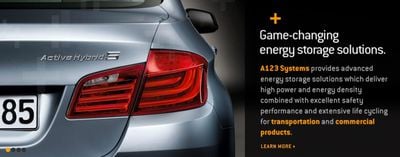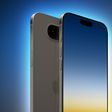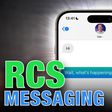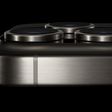Amid rumors that Apple is hiring employees for a secret car project, the company is today facing a new lawsuit for poaching employees from battery manufacturing company A123 Systems. While the specific battery expertise of many of the employees is unknown, at least one of the employees had experience with developing battery technology for electric vehicles.
According to a lawsuit shared by Law360 (via 9to5Mac) Apple recently hired five employees from A123 Systems to create a "large scale battery division," violating noncompete agreements that employees signed with the latter company.

A123 filed suit Feb. 6 in Massachusetts Superior Court, alleging Apple hired away five employees who developed new battery technology and products and tested existing products, despite the fact that the employees were under contracts with noncompete, nonsolicit, and nondisclosure obligations.
Since June, Apple has been mounting "an aggressive campaign to poach employees of A123 and to otherwise raid A123's business," the complaint said.
The employees are said to have left under "suspicious circumstances," and A123 discovered correspondence between its former employees and Apple recruiters on company computers. A123 warned Apple about the noncompete contracts and sought assurance that Apple would not develop a competing business, but Apple reportedly stopped responding to A123's letters.
According to its website, A123 Systems creates "advanced Nanophosphate lithium iron phosphate batteries and energy storage systems," supplied to many vehicle manufacturers. Two of the employees that Apple hired, Dapeng Wang and Indrajeet Thorat, were PhD scientists who manned separate projects at A123, which the company has had to shut down because of difficulty finding replacements.
Wang's LinkedIn profile lists him as a "Development Engineer" at A123 Systems, working on prismatic cell design and tests, among other things. Thorat's LinkedIn profile indicates he held the position of "Battery Research Engineer, Modeling" and A123, where he worked on batteries for hybrid vehicles.
Designed experiments to understand/optimize performance of a cell for Hybrid and Plug-in hybrid vehicles (HEV and PHEVs), Grid energy storage and frequency regulation. Developed models to predict capacity fade and resistance rise during life of a cell under specific duty cycles.
Other employees listed in the lawsuit are Mujeeb Ijaz (A123 CTO), Don Dafoe (Cell Product Engineering), and Michael Erickson (Battery Materials Scientist). Many of the employees' profiles list them as still with A123, and none have any listed association with Apple. Dafoe's profile lists a "Bay area startup" as his place of employment since January 2015.
It is not clear what the A123 Systems employees hired by Apple are working on at the company or whether their work is related to the company's secret car project because Apple is constantly evolving its technology and working on a wide array of battery improvements for all of its future devices. The lawsuit suggests that A123 Systems is, however, concerned that Apple is working on something that competes with its own product lineup, which is focused on passenger and commercial electric vehicles.

















